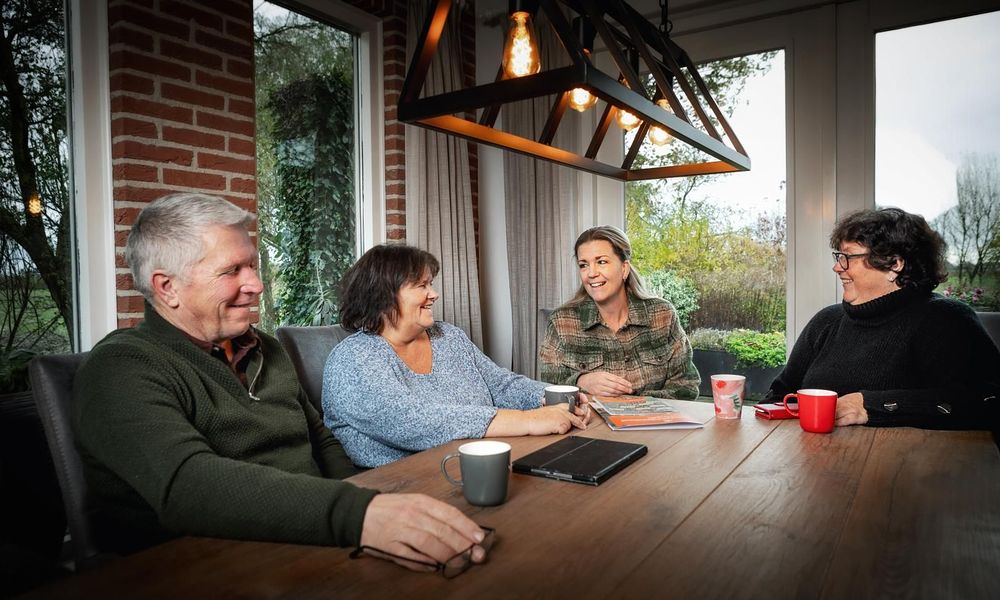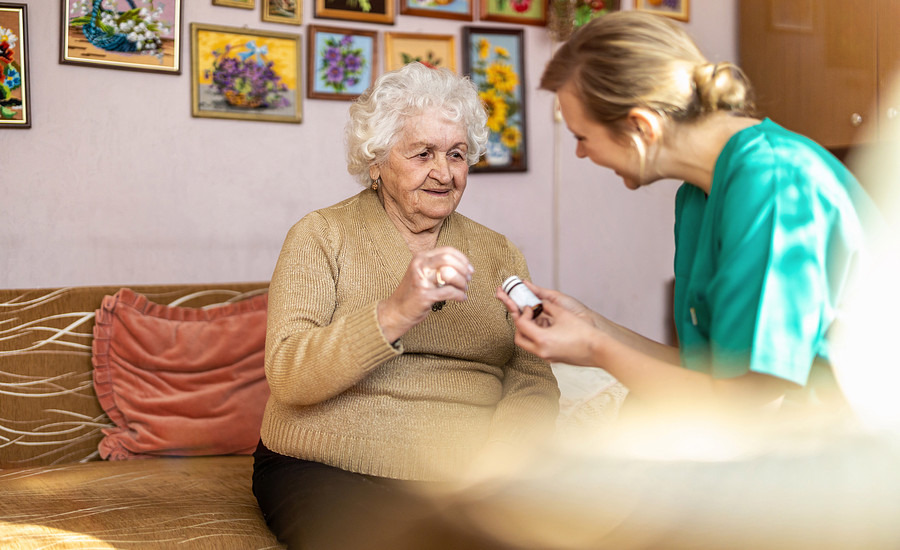Family care in practice: a family's experience
- Research stories

Families have a lot to deal with when a loved one is diagnosed with dementia. Annie, Tine and Marten Nieuwhof experienced that this has a great impact on the whole family, who, together with three other brothers and sisters, take on the extra care for mother Doet. They are happy to do so. ‘But sometimes it's difficult to stand your ground,’ says Annie. In a family meeting with the specialist dementia case manager, they discussed how informal care remains manageable for everyone.
The parental home in Berltsum has recently become vacant, because mother Doet has moved to residential care location IenhoarnState in Menaam. 'That was a good choice,' says Annie Nieuwhof. ‘We just couldn't cope at home any longer. She is thriving in IenhoarnState and looks better and healthier.'
It started when their mother’s focus started slipping. That she couldn't find her passport anymore and that she sometimes got lost in familiar surroundings. She also developed mood swings. Doet preferred to take care of herself and did not allow care so easily. She tried very hard not to let anyone know that something was wrong. Until the realisation came to her, 'I cannot go on like this'.
Specialist dementia case manager Marloes Nicolai got to know Doet when she visited her as a district nurse. Step by step, she gained Doet's trust. 'I found a very sensitive woman, for whom family means everything. I also developed an intense relationship with her children, because Doet was deteriorating rapidly. The daytime activities, where she only wanted to go once a week at most, and the home care gave her some peace of mind.’
And that was necessary, say Annie, Tine and Marten. 'She often called one of us when she was angry and regularly woke up in the morning, confused, downstairs on the couch. Every morning we wondered how she had made it through the night.'
The care, and with it the concern about their mother, increased. 'I found it very difficult to deal with the situation,' says Annie. ‘Mother could suddenly be very angry and unreasonable. She didn't see that I was having a hard time as well. Sometimes it was too much for me, but out of guilt I went to see her every day. Marloes then said that it was okay to step back every now and then. "Listen to yourself, otherwise you won't be able to keep it up," was her advice.'
On the initiative of case manager Marloes Nicolai, a Family Conversation with the Nieuwhof children took place. Marloes: 'A conversation like this gives openness about how everyone is involved. Every child experiences caring for a parent with dementia differently. Accepting that, and acknowledging the loss gives you breathing space and also allows you to move forward together. The purpose of the Family Conversation is to empower the family members, so that they can come up with solutions themselves. For example, Marten indicated that he wanted to spend an afternoon with his mother every week when the daytime activities stopped. We also discussed how we could better distribute the burden among ourselves so that informal care remained manageable for everyone. Marten does the administration, Tine gets groceries with mom and Annie is in contact with and about care. The other children also have fixed tasks.'
The Family Conversation has been important for the Nieuwhof family. 'We work together much more and now dare to mention it when things aren't going well. Then someone else steps in. Marloes has helped us a lot. It is very nice when someone takes you by the hand and supports you. We trust her and she was very open with us in the Family Conversation. As a result, we were also able to be very open about how the situation affects us.'

Would you like to know more about the research conducted by the research group Family Care?
Bezoek de pagina van het lectoraat FamiliezorgHow satisfied are you with the information on this page?